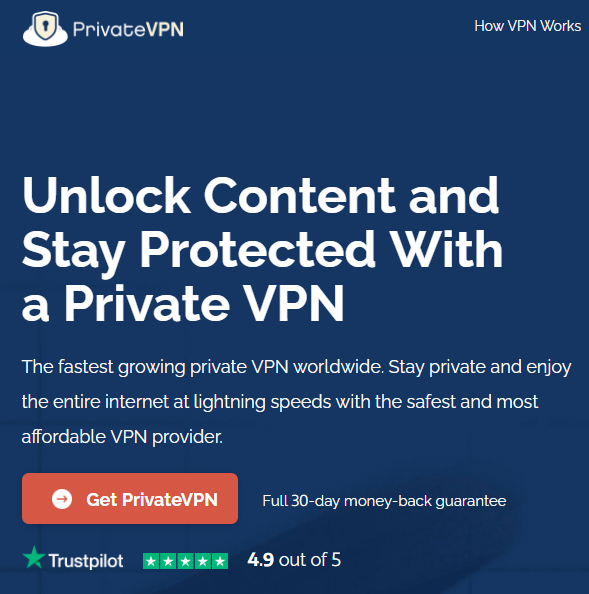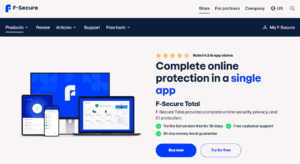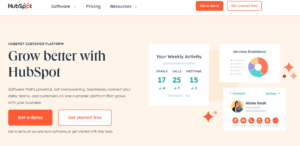When you purchase through links on our site, we may earn an affiliate commission.
The Ultimate Guide to Data Security: Protect Yourself From Online Threats
In the digital age, data security is no longer an optional concern, it’s an essential one. Our personal information, from financial records to medical details, lives online, making it vulnerable to a range of threats. This comprehensive guide empowers you to navigate the digital landscape confidently, equipping you with the knowledge and tools to protect your sensitive data and shield yourself from potential dangers. Dive in and discover how to safeguard your information, understand the evolving threats, and embrace best practices for a secure and empowered online experience.
Table of Contents
Understanding the Threats:
Before diving into defense strategies, let’s explore the common threats lurking online:
- Malware: Malicious software like viruses, worms, and Trojan horses can infiltrate your devices, steal data, or disrupt operations. One product that offers protection to Malware is Malewarebytes!
- Phishing: Deceptive emails or messages attempt to lure you into revealing sensitive information like passwords or credit card details.
- Ransomware: This malware encrypts your files, demanding a ransom to restore access, leaving you vulnerable and potentially financially burdened.
- Data Breaches: Organizations can experience security lapses, exposing personal information to unauthorized individuals.

Building Your Defenses:
Now that we understand the threats, let’s build your data security fortress:
- Strong Passwords: Utilize unique, complex passwords for every account, and consider a password manager for better management, NordPass offers exactly that.

- Multi-Factor Authentication (MFA): Add an extra layer of security by requiring a second verification step, like a code sent to your phone, when logging in.
- Software Updates: Keep your operating systems, applications, and antivirus software up-to-date to patch vulnerabilities exploited by attackers.
- Data Encryption: Encrypt sensitive data on your devices and in transit to protect it from unauthorized access even if intercepted.
- Beware of Public Wi-Fi: Avoid public Wi-Fi networks for sensitive activities, as they can be easily compromised. Opt for a Virtual Private Network (VPN) for added security when needed.
- Phishing Awareness: Be cautious of suspicious emails, texts, or calls. Don’t click on unknown links or attachments, and verify the sender’s legitimacy before responding.
- Regular Backups: Regularly back up your important data to a secure location, like an external hard drive, in case of system failure or malware attacks. A great tool for your precious backups would be by using EaseUS Backup & Data Recovery.

Taking it Further:
Beyond the basics, consider these advanced steps:
- Security Software: Invest in reputable antivirus and anti-malware software for comprehensive protection.
- Data Governance: Implement data management practices like access controls and data minimization to reduce potential risks.
- Stay Informed: Keep yourself updated on emerging threats and security best practices through reliable sources.
Remember: Data security is an ongoing process. By adopting these practices and staying vigilant, you can significantly reduce the risk of online threats and protect your valuable information.
What is a VPN?
VPN stands for “virtual private network.” It’s a service that gives you safe and private access to the internet. By encrypting your connection, a VPN hides your IP and online activity from spying eyes and keeps your data safe from cybercriminals. That is where NordVPN and Private VPN come in.


By implementing these recommendations and staying informed, you can navigate the digital world with confidence, knowing you have taken proactive steps to safeguard your data security.
Data Security Myths Debunked: Don’t Fall Victim to Misinformation
In the age of information overload, it’s easy to fall prey to myths and misconceptions surrounding data security. These myths can lull us into a false sense of security, leaving our sensitive information vulnerable. Let’s debunk some common myths and empower you with accurate knowledge to protect your data effectively:
Myth 1: Only big companies and celebrities get targeted.
Reality: Everyone is a potential target, regardless of size or status. Hackers often employ automated attacks, casting wide nets in hopes of snagging valuable information. Criminals might be interested in financial data, medical records, or even personal details for identity theft.
Myth 2: Free antivirus software is enough protection.
Reality: While free antivirus software can offer basic protection, it might not be enough against evolving threats. Consider investing in reputable and regularly updated security software that provides comprehensive protection, including malware detection, phishing filters, and firewalls.
Myth 3: Public Wi-Fi is safe if I use a VPN.
Reality: While a VPN encrypts your data, public Wi-Fi networks themselves can be compromised. Hackers might exploit vulnerabilities in the network infrastructure to intercept data even with a VPN. It’s best to avoid sensitive activities like banking or online shopping on public Wi-Fi altogether.
Myth 4: Cloud storage is inherently insecure.
Reality: Reputable cloud storage providers invest heavily in data security measures like encryption, access controls, and disaster recovery plans. Choosing a trustworthy provider and understanding their security practices is crucial.
Myth 5: Data breaches only happen to big companies.
Reality: Data breaches can affect any organization, regardless of size. Smaller businesses might be even more vulnerable due to limited resources and awareness. Staying informed about data security best practices and implementing appropriate safeguards is vital for all.
Remember: Don’t let myths cloud your judgment. Data security is everyone’s responsibility. By staying informed, adopting responsible online practices, and utilizing adequate security measures, you can significantly reduce the risk of data breaches and safeguard your valuable information.
Additional Resources:
- National Institute of Standards and Technology (NIST) Cybersecurity Framework: https://www.nist.gov/cyberframework
- StaySafeOnline: https://staysafeonline.org/
- US-CERT: https://www.us-cert.gov/
Data Security for Businesses: Complying with Regulations & Protecting Your Data
In today’s data-driven world, businesses of all sizes hold a vast amount of sensitive information – from customer details and financial records to intellectual property. Protecting this data is not only crucial for your reputation and customer trust, but also mandated by various data security regulations. Here’s how to navigate this landscape:
Understanding the Compliance Landscape:
First, familiarize yourself with relevant regulations based on your industry and location. Some key examples include:
- General Data Protection Regulation (GDPR): Applies to businesses processing personal data of EU citizens.
- California Consumer Privacy Act (CCPA): Grants Californians rights to access, delete, and opt-out of the sale of their personal data.
- Health Insurance Portability and Accountability Act (HIPAA): Protects the privacy of healthcare data in the US.
- Payment Card Industry Data Security Standard (PCI DSS): Mandates security measures for businesses handling credit card information.
Failing to comply with these regulations can result in hefty fines, reputational damage, and even lawsuits.
Implementing Data Security Measures:
Beyond compliance, a strong data security posture is essential. Here are key steps:
- Conduct a risk assessment: Identify vulnerabilities, prioritize risks, and develop mitigation strategies.
- Implement access controls: Restrict access to sensitive data based on the “need-to-know” principle.
- Encrypt sensitive data: Protect data at rest and in transit with robust encryption techniques.
- Regularly update software: Patch vulnerabilities in operating systems, applications, and security software promptly.
- Train employees: Educate staff on data security best practices and phishing awareness.
- Have a data breach response plan: Establish clear procedures for identifying, containing, and reporting data breaches.
Additional Considerations:
- Data governance: Implement policies and procedures for data collection, storage, and usage.
- Third-party vendor management: Ensure vendors handling your data have adequate security measures in place.
- Stay informed: Keep up-to-date with evolving threats and regulations.
Remember: Data security is an ongoing process, not a one-time fix. By prioritizing compliance, implementing robust security measures, and fostering a culture of data awareness within your organization, you can significantly reduce risks and protect your valuable data.
Secure Your Workday: Data Security for Remote Workers
The rise of remote work has transformed the way we operate, offering flexibility and convenience. However, it also introduces new data security challenges. As a remote worker, you’re responsible for safeguarding sensitive company data even outside the traditional office environment. Here’s how to ensure a secure and productive workday:
Building a Secure Home Network:
- Strong Wi-Fi password: Use a complex, unique password and enable WPA2 encryption on your home Wi-Fi network. Consider a guest network for visitors.
- Router security: Keep your router’s firmware updated and disable remote access features unless absolutely necessary.
- Firewall: Consider using a firewall to further protect your devices from unauthorized access.
Safeguarding Sensitive Data:
- Limit data sharing: Only share work documents and information through authorized channels like secure cloud storage or company-approved collaboration tools.
- Data encryption: Encrypt sensitive data on your devices and portable storage drives using strong encryption algorithms.
- Physical security: Keep sensitive documents and devices locked away when not in use, especially if you share your workspace with others.
Staying Vigilant Against Threats:
- Phishing awareness: Be cautious of suspicious emails, texts, or calls. Don’t click on unknown links or attachments, and verify the sender’s legitimacy before responding.
- Software updates: Keep your operating system, applications, and antivirus software up-to-date to patch vulnerabilities exploited by attackers.
- Public Wi-Fi: Avoid using public Wi-Fi networks for sensitive activities like accessing company data. If essential, use a Virtual Private Network (VPN) for added security.
Communication Channels:
- Secure platforms: Use company-approved communication platforms for work-related conversations and avoid public messaging apps.
- Virtual meetings: Secure virtual meeting rooms with password protection and enable waiting rooms to control access.
Additional Tips:
- Regular backups: Back up your important work data regularly to a secure location in case of system failures or data breaches.
- Report suspicious activity: Immediately report any suspicious activity or potential data breaches to your IT department.
- Stay informed: Keep yourself updated on emerging data security threats and best practices through reliable sources.
- Antivirus & Cybersecurity Software: Remember, no matter how vigilant one can be, you always need a helping hand like F-Secure Internet Security.
Remember: Data security is a shared responsibility. By following these practices and collaborating with your company’s IT team, you can create a secure and productive remote work environment, safeguarding sensitive data and ensuring a smooth workflow.
Data Security on a Budget: Protect Yourself Without Breaking the Bank
Living in a digital world, protecting your precious data is crucial, but let’s face it, robust data security solutions can sometimes come with a hefty price tag. Fear not! With some smart strategies, you can significantly enhance your data security without blowing your budget:
Leveraging Free Resources:
- Strong passwords: Utilize unique, complex passwords for every account. Consider free password managers like KeePass or Bitwarden for easy management.
- Multi-factor authentication (MFA): Enable MFA whenever available, adding an extra layer of security with a code sent to your phone. Many services offer this for free.
- Free antivirus software: Reputable options like Avira Free Antivirus or Kaspersky Free Anti-Virus provide basic protection against malware and viruses.
- Secure cloud storage: Explore free tiers of services like Google Drive or Dropbox, offering limited storage for essential documents.
Budget-Friendly Upgrades:
- Two-factor authentication apps: Consider free apps like Google Authenticator or Microsoft Authenticator for added security beyond SMS-based MFA.
- Passwordless authentication: Opt for passwordless login options like fingerprint scanners or facial recognition when available, eliminating the need for remembering complex passwords.
- Virtual Private Network (VPN): VPN options like NordVPN or PrivateVPN offer data encryption and privacy protection for public Wi-Fi use.
Smart Practices for Everyday Protection:
- Beware of phishing scams: Be cautious of suspicious emails, texts, or calls. Don’t click on unknown links or attachments, and verify the sender’s legitimacy before responding.
- Regular backups: Back up your important data regularly to an external hard drive or cloud storage to protect against accidental loss or ransomware attacks.
- Software updates: Keep your operating system, applications, and security software up-to-date to patch vulnerabilities exploited by attackers.
- Public Wi-Fi awareness: Avoid sensitive activities like banking or online shopping on public Wi-Fi networks. If necessary, use a paid VPN with stronger encryption.
Remember: Data security is an ongoing process, not a one-time fix. By combining these free or affordable resources with smart online habits, you can significantly reduce your risk of data breaches and protect your valuable information without breaking the bank.
The Future of Data Security: What Lies Ahead for Data Protection
Our digital world continues to evolve at breakneck speed, and with it, the landscape of data security is constantly shifting. While the core principles of data protection remain vital, emerging technologies and evolving threats necessitate a forward-thinking approach. Let’s explore some key trends shaping the future of data security:
The Rise of Artificial Intelligence (AI):
- AI-powered security solutions: AI can analyze vast amounts of data to identify and respond to threats in real-time, offering more proactive and efficient protection.
- Challenges of AI-powered attacks: Malicious actors might exploit AI to orchestrate more sophisticated attacks, requiring even more advanced defense mechanisms.
The Evolving Threat Landscape:
- Quantum computing: The rise of quantum computers could pose significant challenges to traditional encryption methods, necessitating the development of post-quantum cryptography.
- Deepfakes and social engineering: The increasing sophistication of deepfakes and social engineering techniques could require enhanced user awareness and advanced detection methods.
Increased Focus on Data Privacy:
- Regulations: Stringent data privacy regulations like GDPR and CCPA will continue to evolve, requiring organizations to adapt their data security practices.
- Individual control: Consumers are demanding more control over their data, leading to the development of technologies like decentralized identity management.
The Human Factor:
- Security awareness training: Ongoing training and education for individuals and organizations will remain crucial in combating social engineering and phishing attacks.
- Zero-trust security: This model assumes no user or device is inherently trustworthy, requiring continuous verification and access control.
Preparing for the Future:
- Stay informed: Keeping up-to-date with emerging threats, technologies, and regulations is essential for adapting your data security approach.
- Invest in secure solutions: Choose data security solutions that are adaptable and can evolve with the changing threat landscape.
- Promote a culture of security: Foster a culture within your organization where everyone understands their role in protecting data.
Remember: The future of data security is dynamic, but by staying informed, embracing innovation, and prioritizing human awareness, we can build a more secure and resilient digital ecosystem for all.




